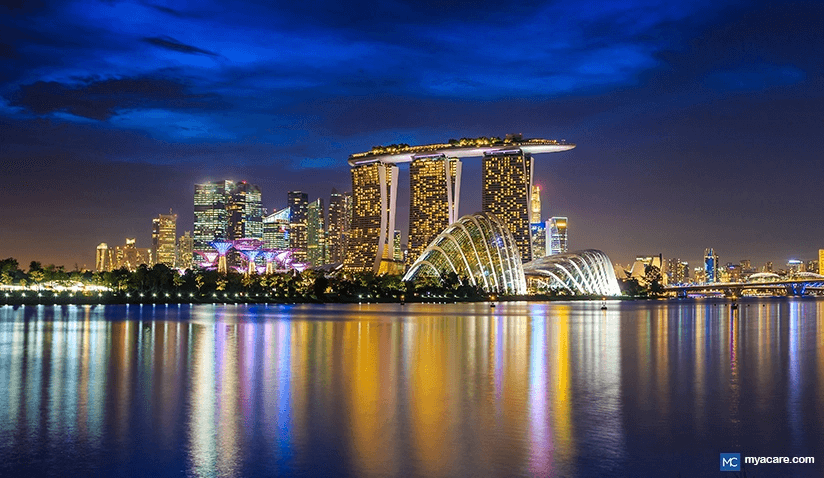3 Things That Make Healthcare in Singapore Unique

Updated 7th August 2023
As of 7th August 2023, there are no COVID-19 travel restrictions in Singapore. If the situation changes, the article will be updated as necessary.
Foreigners from all over the world travel to Singapore for many reasons, including tourism, education, trade and especially, healthcare. Healthcare in Singapore has a rather impressive history, gaining momentum alongside the country's quick ascent into first-world excellence in a single generation.
If you're looking to travel for your health, then here are three compelling reasons why healthcare in Singapore should be at the top of your list!
1. The Standard of Healthcare In Singapore is Exceptionally High
Unlike many countries, public healthcare in Singapore maintains such a high level of excellence that the public sector actually sets the standard for the private sector[1].
All healthcare centers in general run on a semi-private system, which pushes them all to achieve the highest standards and compete against each other, no matter whether privately owned or government run. As a result, many countries and their citizens turn to healthcare in Singapore for the best treatment possible.
2. The Cost of Treatment is Greatly Reduced
While healthcare is free to all of Singapore's citizens thanks to taxes and a mandatory national savings scheme; tourists are still expected to pay the fees.
However, even the full cost of the most expensive medical procedures is still less than what you would expect to pay in the US and other Western countries. On average, you can expect to pay a third or less of the price!
Private hospitals tend to charge a slightly higher fee than public hospitals in Singapore for the same degree of service, but many foreigners still prefer private hospitals as there are minimal queues to wait in.
The price also depends on your requirements. In a typical Singapore hospital, the wards are divided by class, much like on an airplane flight. The best rooms are comparable to that of a five-star hotel and will charge you accordingly, whereas an average hospital room will be a lot cheaper than staying overnight at a US hospital.
3. Singapore Has a Few World-Renowned Specialty Clinics
Another reason people from far and wide travel for healthcare in Singapore is due to its reputation for world-class specialists and specialty clinics[2]. You can find reputable clinics for the following specializations and diseases in Singapore:
- Cancer
- Sports Injuries
- Orthopedics
- Eye Treatment
- Cardiology
- Skincare
Healthcare Providers in Singapore
Kids Clinic is a children's hospital & medical center located in Singapore. Kids Clinic’s Child Specialist provides general and specialized pediatric care.
Lifescan Imaging is a radiology centre in Singapore offering a range of imaging services such as Bone Mineral Densitometry, Diagnostic X-Rays and so on.
SW1 clinic is known for experienced, passionate & knowledgeable medical practitioners. SW1 provides some of the best anti-aging, acne treatments & regenerative medicine in Singapore.
The Cancer Center in Singapore provides some of the best cancer/oncology care in Singapore. The facility treats cancer/oncology by various methods including chemotherapy, Immunotherapy, and much more.
The Dental Studio provides some of the best dental health care services in Singapore for both adults and children.
Cardiac Center International is part of the Singapore Medical Group (SMG). The facility has highly experienced heart specialist doctors as part of their staff.
Wellness & Gynaecology Centre by Dr Julinda Lee
Wellness & Gynaecology Centre in Singapore is the arm of SMG providing health care services for women. Services are centered primarily around functional medicine.
Lifescan Medical Centre located in Singapore specialises in delivering personalised, executive screening, general check ups and wellness programmes.
SMG is a private specialist and primary healthcare provider with a network of more than 20 medical specialties. The Group is committed to its promise of providing patient centered medical care and experience to every individual.
Astra Women’s Specialists Centre
Are you looking for a women's specialist center in Singapore? Astra Women's Specialists Centre provides health care services especially for women & international patients.
The Lasik Surgery Clinic located in Singapore specializes in all ophthalmology services including Laser Eye surgery, Refractive Eye surgery and Cataract Surgery.
The Obstetrics & Gynaecology Centre
The Obstetrics & Gynaecology Centre in Singapore provides some of the best health care services for women. It has a team of committed and highly experienced obstetrics and gynecology specialists.
For Healthcare in Singapore, please visit Mya Care.
The Mya Care Editorial Team comprises medical doctors and qualified professionals with a background in healthcare, dedicated to delivering trustworthy, evidence-based health content.
Our team draws on authoritative sources, including systematic reviews published in top-tier medical journals, the latest academic and professional books by renowned experts, and official guidelines from authoritative global health organizations. This rigorous process ensures every article reflects current medical standards and is regularly updated to include the latest healthcare insights.
Sources:
Featured Blogs



